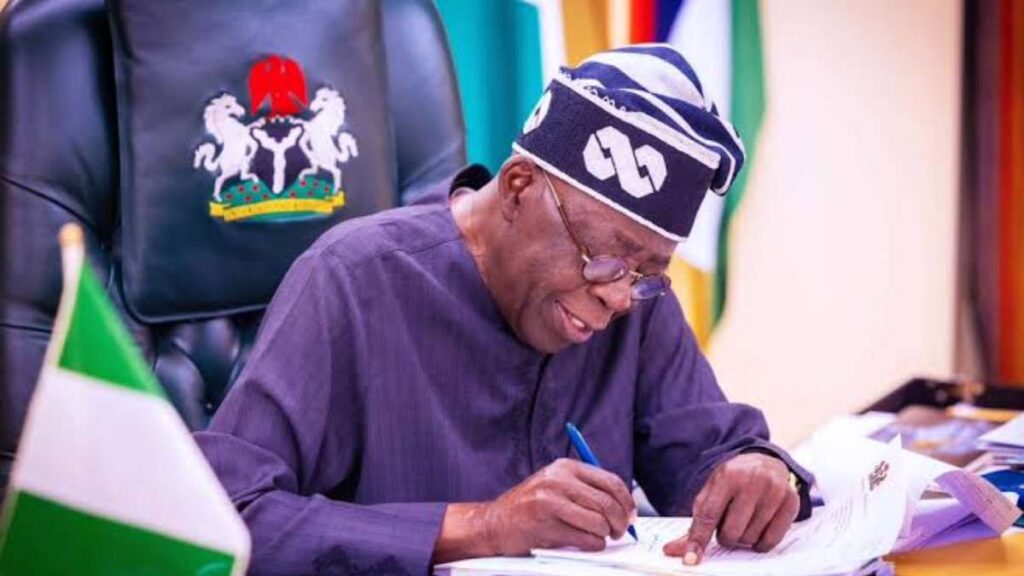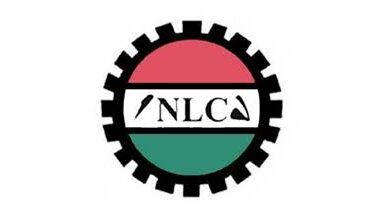
President Bola Ahmed Tinubu reaffirmed his administration’s commitment to youth empowerment and job creation through digital economy development.
He made this statement on Monday in Abuja while receiving a report titled Digital Economy, Youth Empowerment, and Sustainable Job Creation in Nigeria: Issues, Challenges, and Opportunities from participants of the Senior Executive Course 46 of the National Institute for Policy and Strategic Studies (NIPSS), Kuru.
The report outlined an eight-point recommendation, urging the federal government to:
- Expedite the enactment of the Digital Economy and e-Governance Bill 2024.
- Encourage states to waive Right of Way fees for telecom infrastructure deployment.
- Issue an Executive Order mandating all MDAs to migrate to the OneGov.ng portal.
- Adopt a Quintuple-Helix model to drive digital economy growth and job creation.
- Ensure long-term funding for the 3MTT scheme and accelerate the transition from IPv4 to IPv6.
- Establish Digital Health Innovation hubs nationwide.
- Develop a preventive maintenance application for Nigeria’s automotive industry.
President Tinubu directed the Minister of Communications and Digital Economy to work with relevant agencies to implement the recommendations. He emphasized the importance of youth empowerment through digital innovation and skills development.
“At the core of our administration is youth empowerment. We will not relent, and collaboration is key. I appreciate the rigorous work behind your recommendations,” Tinubu stated.
He praised NIPSS for its research and acknowledged its insights on agency overlaps. He assured the government would continue engaging with the institute as a think tank for national policy development.
Highlighting the role of data in governance, Tinubu revealed he had met with National Population Commission (NPC) officials to discuss the upcoming census.
Prof. Ayo Omotayo, NIPSS Director-General, noted that the course participants conducted study tours in Nigeria and abroad to explore their research theme. He stressed the need for Nigeria to harness its youthful population for technological innovation.
“Fintech, Agri-Tech, E-Commerce, and AI opportunities are vast. However, systemic challenges such as infrastructure deficits, inadequate digital skills, and regulatory hurdles must be addressed,” Omotayo said.
He urged the government to create policies enabling startups, improving funding access, and expanding broadband penetration. He expressed confidence that with sustained support, Nigeria’s digital economy could generate millions of jobs for youth.
Minister of Communications and Digital Economy Bosun Tijani revealed that the Digital Economy Bill is currently before the National Assembly. Public hearings will be conducted in all 36 states and the Federal Capital Territory before its passage in the second quarter of 2025.
On broadband expansion, Tijani disclosed that 11 states had responded positively to the federal government’s request to waive Right of Way fees. He expects nationwide compliance by the second year of Tinubu’s administration.
He also highlighted Nigeria’s progress in transitioning from IPv4 to IPv6, positioning the country among Africa’s first to achieve full migration.
Furthermore, the federal government approved a $2 billion investment in 90,000 kilometers of fiber optic cables, making Nigeria’s broadband infrastructure the third-longest in Africa after South Africa and Egypt.
The project, backed by a $500 million commitment from the World Bank, is advancing with support from the Ministry of Finance.
Coordinating Minister of the Economy and Minister of Finance, Wale Edun, noted that Nigeria’s ICT sector contributed 16% to the GDP in 2024. He emphasized that prioritizing the sector is essential for economic stability and job creation.
Edun also referenced Tinubu’s recent meeting with Flutterwave’s CEO, where the fintech company pledged to support Nigerian youth and SMEs through technology-driven solutions with lasting economic benefits.
He revealed that Flutterwave is considering listing on Nigeria’s Stock Exchange, a move expected to strengthen the country’s tech and payments ecosystem.
With these efforts, the federal government remains committed to leveraging technology to create sustainable jobs and empower Nigerian youth.




